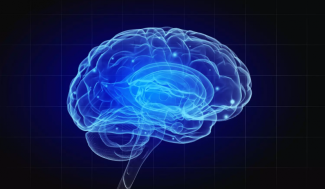Although Alzheimer's disease is not hereditary in 99% of cases, genetic factors can increase the risk of developing it. The "Alzheimer's disease, prion diseases" team, co-directed by Marie-Claude Potier (CNRS) at the Paris Brain Institute, has identified an association between the presence of cerebral amyloid plaques, one of the characteristic lesions of Alzheimer's disease, and a combination of 17 genetic variants.
Today, in view of the increase in life expectancy and the consequent rise in the number of cases of Alzheimer's disease, one major challenge is to predict the onset of the disease early in order to treat it before the first symptoms appear.
It has been shown that the presence of amyloid plaques (protein aggregates characteristic of the disease) in the brains of elderly people without cognitive decline significantly increases the risk of developing Alzheimer's disease in later years.
However, to date, the detection of these plaques in the brain can only be done by an expensive imaging method, unusable in routine medicine, the PET-MRI (Positron Emission Tomography-Magnetic Resonance Imaging) or by an assay in the plasma or cerebrospinal fluid (lumbar puncture). On the other hand, detection is only possible at a late stage, when amyloid plaques are present in the brain, i.e. shortly before the onset of symptoms.
Genetic susceptibility factors in Alzheimer's disease
Although Alzheimer's disease is not hereditary (except in 1% of cases), it has been shown that there are genetic susceptibility factors that increase the risk of developing the disease. Previous studies have shown that people carrying a particular allele of the APOE gene, APOEe4, have a 3 to 15 times higher risk than non-carriers, but also that some patients with Alzheimer's disease do not carry this allele.
Since then, other anonymous genome screening studies, i.e. the comparison of the frequencies of genetic variants between several thousand patients and control individuals, have identified more than 40 variants that predispose to the disease. As each of these variants is neither necessary nor sufficient, only a combination of several of them (multigene risk) gives an individual a greater risk of developing the disease.
A polygenic score associated with the presence of amyloid plaques
The "Alzheimer's disease, prion diseases" team, co-led by Marie-Claude POTIER, a CNRS researcher at the Paris Brain Institute, hypothesised that a multigene score could be associated with the future appearance of amyloid plaques in the brain, thus allowing early targeting of people at greater risk of developing the disease.
The study began with the INSIGHT cohort of the Institute of Memory and Alzheimer's Disease (IM2A) of 291 asymptomatic elderly people, 83 of whom had amyloid plaques in the brain. The team showed that an optimised polygenic score including 17 non-APOE Alzheimer's disease susceptibility variants is associated with the presence of amyloid plaques in the INSIGHT cohort. This score was then validated in an independent cohort.
The results of this work show an association between the presence of cerebral amyloid plaques and a combination of 17 genetic variants, which are carried by the individuals studied. This score is valid for both APOE4 and non-APOE4 carriers, demonstrating that there are other genetic factors than APOE involved in amyloid plaque formation. Assessing the genetic load conferred by these 17 variants, prior to possible detection of amyloid plaques in the brain or plasma, would allow very early identification of patients most at risk of developing amyloid plaques and thus be able to prevent the onset of the disease through more interventional follow-up.
Sources
https://pubmed.ncbi.nlm.nih.gov/35606148/
Xicota L, Gyorgy B, Grenier-Boley B, Lecoeur A, Fontaine GL, Danjou F, Gonzalez JS, Colliot O, Amouyel P, Martin G, Levy M, Villain N, Habert MO, Dubois B, Lambert JC, Potier MC; INSIGHT pre-AD study group and for the Alzheimer’s Disease Neuroimaging Initiative*.Neurology. 2022 May 23. doi: 10.1212/WNL.0000000000200544.







